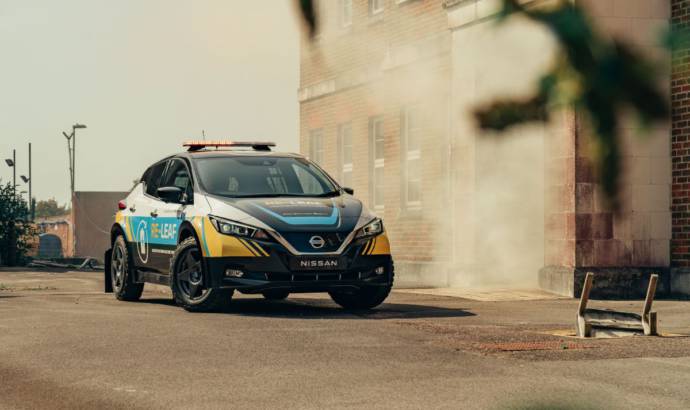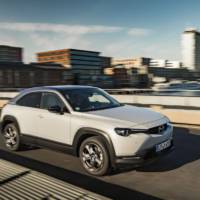From time to time, Nissan is developing a concept that shows its dedication for helping people in difficult situations. Nissan has unveiled a 100% electric emergency response vehicle concept, designed to provide a mobile power supply following natural disasters or extreme weather events.
Called RE-LEAF, the working prototype is based on the Nissan LEAF passenger car, the world’s first mass-production electric vehicle.
Alongside modifications to navigate roads covered in debris, the RE-LEAF features weatherproof plug sockets mounted directly to the exterior of the vehicle, which enable 110 to 230-volt devices to be powered from the car’s high-capacity lithium-ion battery.
The RE-LEAF can be driven into the centre of a disaster zone and provide a fully mobile power supply to aid the recovery process. The integrated energy management system can run medical, communications, lighting and other life-supporting equipment.
When a disaster hits, the time for electricity supply to be restored is typically 24-48 hours, depending on the severity of the damage. During that period, electric vehicles can provide zero-emission, mobile emergency power.
Nissan created the RE-LEAF to demonstrate the potential of electric vehicles in disaster recovery. Although it’s just a working concept, the technology is already being used in the real world. In Japan, Nissan has used the LEAF to provide emergency power and transportation following natural disasters since 2011, and the company has formed partnerships with more than 60 local governments to support disaster relief efforts.
The RE-LEAF uses the LEAF’s bi-directional charging ability, a standard feature of the model since its introduction in 2010. This means the LEAF can not only ‘pull’ power to recharge the high-capacity battery, but also ‘push’ it back to the grid through V2G (Vehicle-to-Grid) technology, or directly to electronic devices through V2X (Vehicle-to-everything).
Acting as a portable power station, the latest generation Nissan LEAF e+ with a fully charged 62 kilowatt-hour (kWh) battery can provide enough electricity to power the average UK household for around six days.





